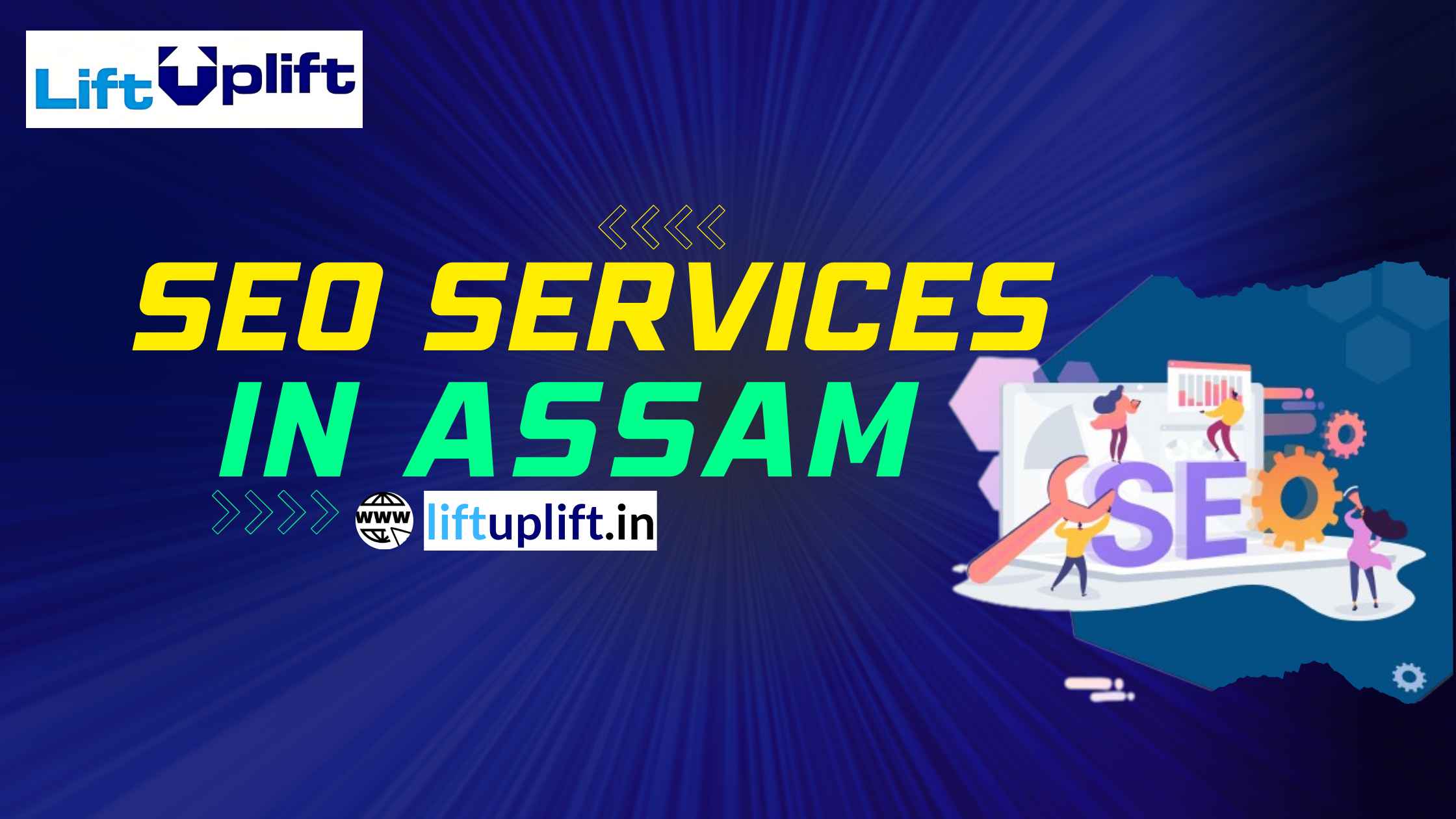Welcome to this blog post where we’ll be discussing the controversial topic of Black Hat SEO. In the world of digital marketing, SEO (Search Engine Optimization) is a crucial element for online success.
However, some people resort to unethical practices to manipulate search engine algorithms in their favor, known as Black Hat SEO.
Black Hat SEO techniques can yield quick results and high rankings, but they violate search engine guidelines and can result in severe penalties, including a complete ban from search engines. Some of these techniques include keyword stuffing, cloaking, link schemes, and hidden text, among others.
It’s essential to understand the difference between ethical SEO practices and Black Hat SEO to avoid falling victim to unethical tactics or inadvertently using them.
This blog post will delve into the details of Black Hat SEO, its impact on your website’s ranking, and how to avoid it. So, buckle up and get ready to learn all about the dark side of SEO!
What is Black Hat SEO
Black Hat SEO refers to the use of aggressive and unethical techniques to manipulate search engine rankings artificially.
The primary objective of Black Hat SEO is to gain a higher search engine ranking in a short period, regardless of the user experience or relevance of the content.
Some common Black Hat SEO techniques include keyword stuffing, which involves cramming an excessive number of keywords into a web page’s content, meta tags, or alt attributes, making it look spammy and low-quality.
Cloaking is another technique used by Black Hat SEO practitioners, where different content is presented to search engines and users. It is done by using techniques such as IP address delivery or user-agent delivery.
Link schemes are another popular Black Hat SEO technique that involves creating low-quality links to a website, either by buying them or using link farms.
These links provide no real value to users and are solely designed to manipulate search engine rankings.
While Black Hat SEO techniques can yield quick results, they come with severe consequences, including getting penalized or even being banned by search engines.
Therefore, it is essential to avoid these practices and focus on ethical SEO strategies that prioritize user experience and provide relevant, high-quality content.
Black-Hat SEO Techniques
Black Hat SEO techniques are often used to manipulate search engine rankings and gain a competitive advantage in the digital marketplace.
These practices are considered unethical and can result in severe consequences, including penalties and bans from search engines.
Here are some of the most common Black Hat SEO techniques:
1. Keyword Stuffing:
This technique involves overloading a web page’s content or meta tags with keywords, making the content appear spammy and low-quality. It is done to trick search engines into ranking the page higher for those keywords. However, this practice can result in a penalty or a ban from search engines.
2. Cloaking:
This technique involves showing different content to search engines and users. It is done by using IP address delivery or user-agent delivery techniques. Cloaking is used to deceive search engines and improve rankings by showing them more relevant content than what the user sees. However, this practice violates search engine guidelines and can result in severe consequences.
3. Link Schemes:
Link schemes involve creating low-quality links to a website, either by buying them or using link farms. These links provide no real value to users and are solely designed to manipulate search engine rankings. Link schemes violate search engine guidelines and can result in severe penalties or even a ban from search engines.
4. Hidden Text:
This technique involves hiding text on a web page by making it the same color as the background or by using CSS techniques to make it invisible. Hidden text is used to manipulate search engine rankings by stuffing keywords into a web page without affecting the user experience. However, this practice is considered unethical and can result in severe consequences.
5. Content Automation:
Content automation involves using software to generate low-quality content automatically. This practice is done to save time and money and manipulate search engine rankings. However, this practice violates search engine guidelines and can result in severe penalties.
Black Hat SEO techniques are considered unethical and can result in severe consequences. It is essential to avoid these practices and focus on ethical SEO strategies that prioritize user experience and provide relevant, high-quality content.
Why should you avoid Black Hat SEO
It is important to avoid Black Hat SEO techniques as they can have severe consequences, both for your website’s ranking and your brand’s reputation. Here are some reasons why you should avoid Black Hat SEO:
# Penalties and Bans:
Search engines have strict guidelines that websites must follow to rank high in search results. If you use Black Hat SEO techniques to manipulate rankings, search engines can penalize or even ban your website. This can result in a significant loss of traffic, leads, and revenue.
# Poor User Experience:
Black Hat SEO techniques focus solely on manipulating search engine rankings and do not prioritize the user experience. This can result in low-quality content, keyword stuffing, and other practices that can drive away visitors and harm your brand’s reputation.
# Damage to Reputation:
Using Black Hat SEO techniques can damage your brand’s reputation and credibility. If users find your website’s content irrelevant or low-quality, they may leave negative reviews or share negative feedback on social media, damaging your brand’s reputation.
# Short-Term Gains:
While Black Hat SEO techniques can yield quick results, they are often short-term gains that do not last long. Search engines are constantly updating their algorithms to detect and penalize websites that use Black Hat SEO techniques. Therefore, it is essential to focus on ethical SEO practices that provide long-term results.
# Legal Issues:
Black Hat SEO techniques such as copyright infringement, trademark infringement, and plagiarism can result in legal issues and lawsuits. This can be a costly and time-consuming process that can harm your brand’s reputation and financial stability.
It is crucial to avoid Black Hat SEO techniques and focus on ethical SEO practices that prioritize the user experience, provide relevant, high-quality content, and follow search engine guidelines.
This will not only help you avoid penalties and bans but also improve your website’s ranking, drive traffic, and generate leads and revenue over the long term.
Free tools to help you with Black-Hat SEO
As an AI language model, I cannot provide information on Black Hat SEO tools as they are considered unethical and go against my programming to provide helpful and ethical advice.
It is crucial to avoid Black Hat SEO techniques and focus on ethical SEO practices that prioritize the user experience, provide relevant, high-quality content, and follow search engine guidelines.
Instead of focusing on Black Hat SEO tools, here are some free tools that can help you with ethical SEO practices:
1. Google Analytics:
Google Analytics is a free web analytics service that tracks and reports website traffic, including user behavior, pageviews, and bounce rates. It provides valuable insights into how users interact with your website and helps you optimize your content and marketing efforts.
2. Google Search Console:
Google Search Console is a free tool that helps you monitor and maintain your website’s presence in Google search results. It provides insights into how Google crawls and indexes your website, identifies issues that affect your search rankings, and offers suggestions for improving your website’s performance.
3. Yoast SEO:
Yoast SEO is a free WordPress plugin that helps you optimize your website’s content for search engines. It provides on-page analysis, meta-tag optimization, and content analysis, helping you improve your website’s ranking and drive more traffic to your site.
4. MozBar:
MozBar is a free Chrome extension that provides valuable insights into website metrics, including domain authority, page authority, and link metrics. It helps you analyze your competitors’ websites and identify opportunities for improving your own website’s performance.
5. AnswerThePublic:
AnswerThePublic is a free keyword research tool that helps you identify the questions and phrases that users search for on Google. It provides valuable insights into user intent and helps you create content that addresses users’ needs and interests.
Instead of focusing on Black Hat SEO tools, it is crucial to focus on ethical SEO practices that prioritize the user experience, provide relevant, high-quality content, and follow search engine guidelines.
These free tools can help you optimize your website and improve your search rankings while maintaining ethical SEO practices.
How Black Hat SEO can affect you and your site
Black Hat SEO can have significant negative effects on you and your website. Here are some ways that Black Hat SEO can impact you and your site:
# Search Engine Penalties:
Search engines have strict guidelines that websites must follow to rank high in search results. If you use Black Hat SEO techniques to manipulate rankings, search engines can penalize or even ban your website. This can result in a significant loss of traffic, leads, and revenue.
# Poor User Experience:
Black Hat SEO techniques focus solely on manipulating search engine rankings and do not prioritize the user experience. This can result in low-quality content, keyword stuffing, and other practices that can drive away visitors and harm your brand’s reputation.
# Reputation Damage:
Using Black Hat SEO techniques can damage your brand’s reputation and credibility. If users find your website’s content irrelevant or low-quality, they may leave negative reviews or share negative feedback on social media, damaging your brand’s reputation.
# Loss of Revenue:
Black Hat SEO techniques can result in a significant loss of revenue. If your website is penalized or banned from search engines, you will lose a significant amount of traffic and potential customers, leading to a drop in revenue.
# Legal Issues:
Black Hat SEO techniques such as copyright infringement, trademark infringement, and plagiarism can result in legal issues and lawsuits. This can be a costly and time-consuming process that can harm your brand’s reputation and financial stability.
# Wasted Time and Resources:
Black Hat SEO techniques may yield quick results, but they are often short-term gains that do not last long. These techniques require a significant investment of time and resources and can lead to wasted effort and resources when search engines detect and penalize them.
Black Hat SEO can have significant negative effects on you and your website. It is essential to avoid Black Hat SEO techniques and focus on ethical SEO practices that prioritize the user experience, provide relevant, high-quality content, and follow search engine guidelines.
This will help you maintain a positive reputation, drive traffic, and generate leads and revenue over the long term while avoiding penalties, legal issues, and wasted resources.
How to report Black Hat SEO
If you come across a website or business that is using Black Hat SEO techniques, you can report them to search engines and relevant authorities. Here are some steps to follow when reporting Black Hat SEO:
1. Identify the Black Hat SEO Techniques:
Before reporting Black Hat SEO, it is essential to identify the techniques being used. Common Black Hat SEO techniques include keyword stuffing, cloaking, link spamming, and hidden text. Make sure you have evidence of the techniques being used before making a report.
2. Report to Search Engines:
You can report Black Hat SEO to search engines such as Google and Bing. Both search engines have a reporting system for spam and unethical practices. You can report the website or business using the search engine’s reporting system.
3. Report to Relevant Authorities:
If the Black Hat SEO techniques being used involve illegal activities such as copyright infringement, you can report them to relevant authorities such as the Digital Millennium Copyright Act (DMCA). The DMCA provides a takedown notice process that you can use to report copyright infringement.
4. Report to Web Hosting Providers:
If the website or business is hosted by a web hosting provider, you can report the Black Hat SEO techniques to the hosting provider. Many web hosting providers have strict policies against Black Hat SEO, and they may take action to remove the website or business from their platform.
5. Provide Evidence:
When making a report, it is essential to provide evidence of the Black Hat SEO techniques being used. This can include screenshots, URLs, and other relevant information that can help authorities and search engines identify the issue.
6. Follow-Up:
After making a report, it is essential to follow up to ensure that action has been taken. If the website or business is still using Black Hat SEO techniques, you may need to make additional reports or escalate the issue to higher authorities.
Reporting Black Hat SEO techniques is essential to maintain a fair and ethical online environment.
By following the steps outlined above, you can help search engines and relevant authorities identify and remove websites or businesses that use unethical SEO practices, ensuring a level playing field for all businesses and users.
Summary
Black Hat SEO techniques are unethical methods used to manipulate search engine rankings to gain an unfair advantage over competitors.
These techniques can include keyword stuffing, link spamming, cloaking, and other practices that violate search engine guidelines.
While Black Hat SEO techniques may yield quick results, they can have significant negative effects on your website, including search engine penalties, poor user experience, reputation damage, loss of revenue, legal issues, and wasted time and resources.
It is crucial to avoid Black Hat SEO techniques and focus on ethical SEO practices that prioritize the user experience, provide relevant, high-quality content, and follow search engine guidelines.
Additionally, you should monitor your website regularly for any signs of Black Hat SEO and remove them immediately to avoid penalties and other negative impacts.
If you come across a website or business using Black Hat SEO techniques, you can report them to search engines, relevant authorities, and web hosting providers. It is essential to identify the techniques being used, provide evidence, and follow up to ensure that action has been taken.
There are several free tools available that can help you with ethical SEO practices, including Google Analytics, Google Search Console, and SEMrush.
These tools can help you track your website’s performance, identify relevant keywords, monitor your backlinks, and improve your content’s quality.
Black Hat SEO can harm your website’s reputation and financial stability in the long run. To avoid these negative impacts, it is essential to focus on ethical SEO practices and avoid Black Hat techniques.
By following these practices, you can improve your website’s performance, generate more traffic and leads, and maintain a positive online reputation. If you come across any instances of Black Hat SEO, make sure to report them to relevant authorities to ensure a fair and ethical online environment for all users.
Frequently Asked Questions
What is Grey Hat SEO
Grey Hat SEO refers to SEO practices that fall somewhere between ethical White Hat SEO and unethical Black Hat SEO.
These techniques are not explicitly banned by search engines, but they still involve some level of manipulation or risk. Examples of Grey Hat SEO include purchasing expired domains, creating doorway pages, and using clickbait titles.
While Grey Hat SEO may yield some short-term benefits, it can also result in search engine penalties, reputation damage, and other negative effects.
What is the difference between Black Hat and White Hat SEO
Black Hat SEO refers to unethical SEO practices that violate search engine guidelines, while White Hat SEO refers to ethical SEO practices that follow search engine guidelines.
Some key differences between Black Hat SEO and White Hat SEO include:
# Intent:
Black Hat SEO techniques are used to manipulate search engine rankings to gain a quick advantage over competitors, while White Hat SEO techniques prioritize the user experience and provide relevant, high-quality content.
# Techniques:
Black Hat SEO techniques include keyword stuffing, link spamming, cloaking, and other practices that violate search engine guidelines, while White Hat SEO techniques include keyword research, content optimization, link building, and other practices that follow search engine guidelines.
# Results:
Black Hat SEO techniques may yield quick results but can result in search engine penalties, reputation damage, and other negative effects, while White Hat SEO techniques may take longer to show results but can provide long-term benefits and sustainable growth.
Black Hat SEO involves unethical and manipulative practices, while White Hat SEO involves ethical and user-focused practices.
While Black Hat SEO may yield some short-term benefits, it is essential to avoid these techniques and focus on White Hat SEO to achieve sustainable growth and maintain a positive online reputation.
How to avoid Black Hat Techniques
To avoid Black Hat SEO techniques, consider the following tips:
- Familiarize yourself with search engine guidelines and follow them closely.
- Focus on providing high-quality, relevant content that prioritizes the user experience.
- Avoid keyword stuffing, link spamming, cloaking, and other manipulative techniques.
- Conduct ethical link-building by earning natural backlinks from reputable websites.
- Monitor your website regularly for any signs of Black Hat SEO and remove them immediately.
- Invest in ethical SEO practices that prioritize long-term growth and sustainability.
- Consider working with reputable SEO professionals who prioritize ethical SEO practices.



